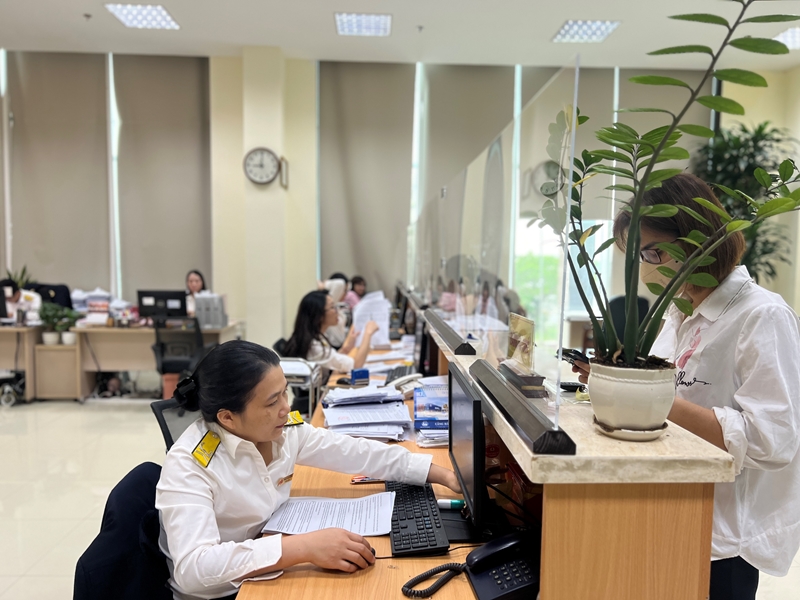(CPV) - The Ministry of Finance has proposed to give the Government the right to adjust the family deduction level, and reform the progressive tax schedule to better suit the people's living standards and international trends. The goal is to ensure that the tax policy is both fair and effective in regulating income, while promoting socio-economic development.
 |
| Illustration photo (Photo: MP) |
It is necessary to adjust family deductions to suit reality.
In the draft to build a replacement Law on Personal Income Tax (PIT), the Ministry of Finance emphasized the need to change regulations on family deductions to properly reflect changes in people's living standards, consumer price index (CPI), and socio -economic conditions.
Currently, the family deduction for taxpayers is VND11 million/month (VND132 million/year) and VND4.4 million/month for each dependent. This regulation has been applied since 2020, helping to reduce the tax burden on people in the context of price fluctuations. However, this deduction also significantly reduces the number of people who have to pay personal income tax. According to calculations, people with an income of VND17 million/month (if having one dependent) or VND22 million/month (if having two dependents) currently do not have to pay personal income tax after deducting insurance and family deductions.
According to the 2023 Population Living Standards Survey Report by the General Statistics Office, the average income per capita in Vietnam is VND 4.96 million/month. The current family deduction is equivalent to more than 2.21 times this average income and is nearly equal to the average income of the richest 20% of the population. This makes the personal income tax policy in Vietnam different from international practice, when the deduction usually fluctuates around the average income per capita.
The Ministry of Finance believes that the family deduction level is too high, which will obscure the role of this tax, causing the personal income tax to no longer perform its function of regulating income and ensuring social equity. Therefore, it is necessary to review the family deduction level to both ensure the rights of taxpayers and maintain the tax's regulatory role.
To ensure flexibility and suitability to the practical context, the Ministry of Finance proposes to assign the Government the right to regulate the family deduction level instead of the National Assembly Standing Committee deciding as it is currently. This will help make adjustments more quickly when there are fluctuations in prices or changes in people's living standards.
The Ministry also proposed expanding deductible expenses, such as medical and educational expenses, as well as charitable and humanitarian contributions. At the same time, the scope and level of deductions for these expenses will be carefully studied to ensure that they meet the actual needs of the people while maintaining the regulatory role of tax policy.
Progressive Tax Reform: Simpler and Fairer
In addition to adjusting family deductions, the Ministry of Finance also proposed to change the progressive tax schedule applicable to resident individuals with income from salaries and wages. Currently, the progressive tax schedule consists of 7 levels, with tax rates ranging from 5% to 35%. The gap between tax levels is relatively narrow, which can easily lead to a "skipping tax level" when summing up income at the end of the year, increasing the amount of tax payable insignificantly but complicating tax declaration and settlement.
To address this problem, the Ministry of Finance proposes to reduce the number of tax brackets and widen the income gap between brackets. This approach not only simplifies tax declaration and payment, but also ensures that income regulation focuses on high-income groups, contributing to reducing the tax burden for middle-income groups.
Tax reform will be carefully considered based on the tax system reform strategy until 2030, in line with the socio-economic context, people's living standards, and international practices. This will not only ensure the rights of workers but also encourage the development of the labor market in the context of international integration.
The Ministry of Finance’s proposed amendments are all aimed at improving the personal income tax policy, ensuring fairness and efficiency. However, the Ministry also noted that the family deduction level, the scope of deductible expenses, and the tax structure need to be carefully calculated so as not to affect the role of this tax in regulating income and contributing revenue to the state budget.
The comprehensive revision of the Personal Income Tax Law will not only help resolve current shortcomings but also ensure that the tax system is more consistent with the socio-economic development trends at home and abroad. Thereby, the personal income tax policy will continue to affirm its important role in promoting social equity and creating momentum for sustainable economic growth./.
Source: https://dangcongsan.vn/kinh-te/de-xuat-cai-cach-thue-thu-nhap-ca-nhan-linh-hoat-hon-trong-giam-tru-gia-canh-684426.html

































































































Comment (0)